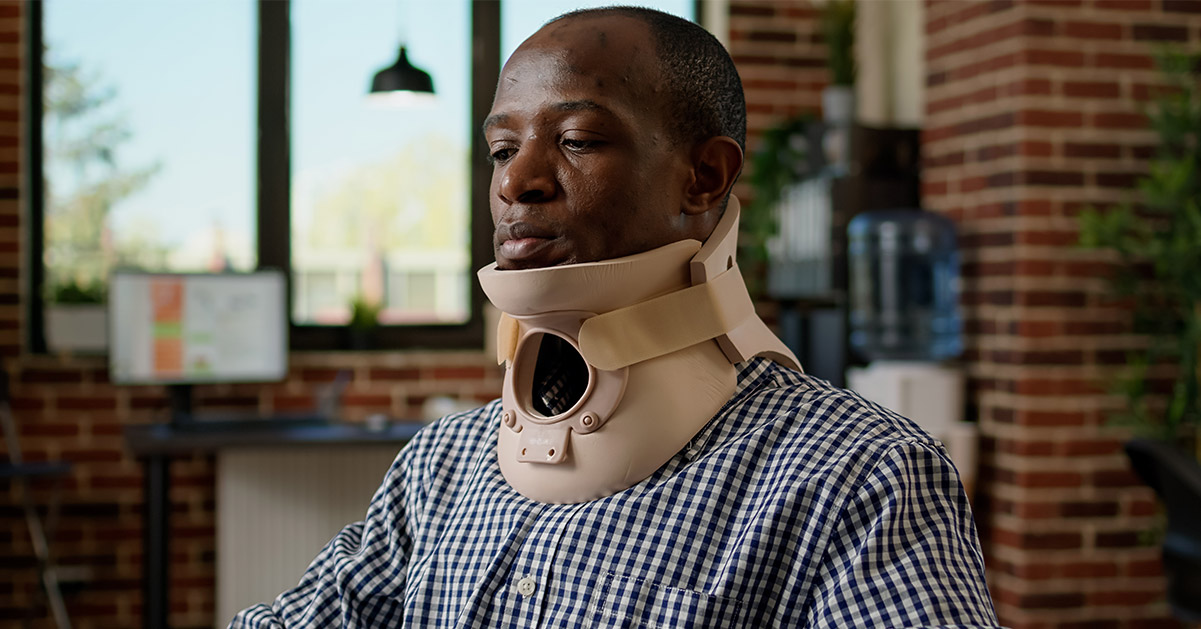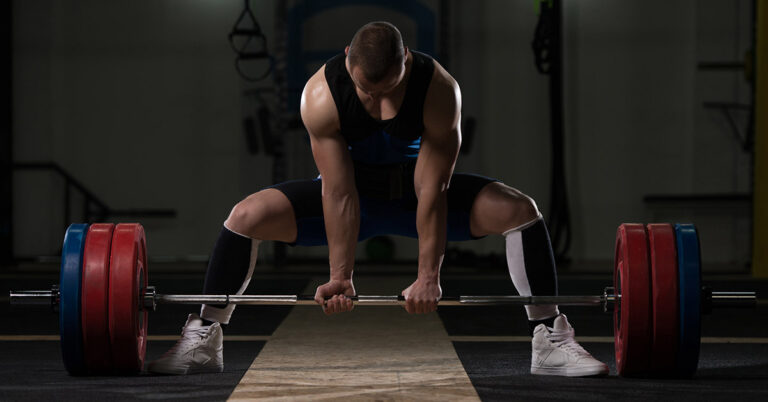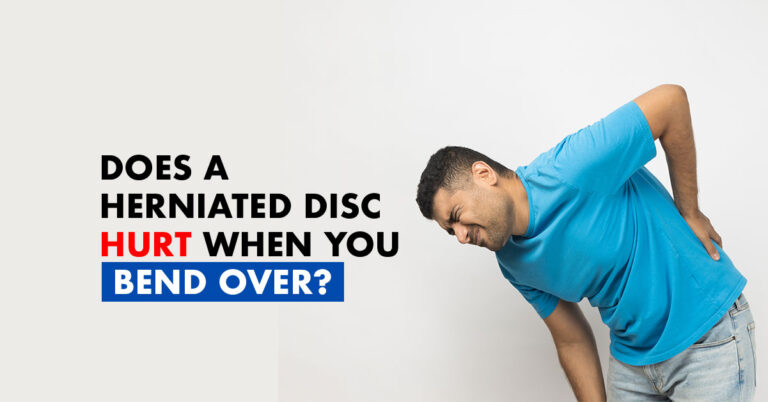Is A Neck Brace Effective For Herniated Disc Relief?
For anyone who has experienced the sharp, shooting pain of a herniated disc, finding relief can feel like an impossible task.
Many turn to a variety of treatments and remedies, including the use of a neck brace. But does this simple device actually provide effective relief for the symptoms of a herniated disc?
In this article, we’ll explore the potential benefits and drawbacks of using a neck brace for herniated disc relief.
We’ll also delve into the different types of neck braces available, including their specific uses and benefits. Additionally, we’ll discuss alternative treatment options for herniated discs, such as chiropractic care, acupuncture, physical therapy, massage therapy, and herbal remedies.
Let’s get started!
Is a Neck Brace Good for a Herniated Disc?
While a neck brace can provide some relief, it is not a long-term solution and should only be used under the guidance of a healthcare professional.
A neck brace, or a cervical collar, is designed to immobilize the neck and limit movement. This can help reduce pain and inflammation in the neck and upper back.
However, wearing a neck brace for extended periods can weaken the muscles in your neck over time. This can lead to more pain and stiffness in the long run.
Braces and collars can also cause pressure on your nerves and blood vessels, leading to further discomfort.
Sometimes, a neck brace may be recommended as part of a comprehensive treatment plan for a herniated disc. This may include physical therapy, medication, and lifestyle changes. Your healthcare provider can help determine if a neck brace is right for you and how long you should wear it.
A neck brace is not a substitute for proper medical care. If you are experiencing symptoms of a herniated disc, such as neck pain, numbness, or weakness, seek medical attention right away.
Your healthcare provider can help diagnose your condition and develop a treatment plan.
Benefits of Using a Neck Brace for Herniated Disc
The following are some benefits of using a neck brace for herniated disc treatment.
Provides Support
One of the main benefits of using a neck brace for a herniated disc is that it supports your neck and spine. The brace helps to immobilize your neck and reduce movement, which can help to relieve pain and discomfort. This is especially helpful during the initial stages of treatment when your neck needs time to heal.
Reduces Pressure
A neck brace can also help to reduce pressure on your neck and spine. By limiting movement, the brace can help to reduce the amount of pressure on your herniated disc. This can help to relieve pain and discomfort and promote healing.
Improves Posture
When you wear a neck brace, you are forced to keep your head and neck in a neutral position. This can help to improve your posture and reduce the risk of further injury.
Easy to Use
Neck braces are also very easy to use. They are typically lightweight and can be easily adjusted to fit your neck and provide the right level of support. You can wear a neck brace for as long as you need to and remove it when moving around or performing other activities.

What is the Best Herniated Disc Neck Brace or Collar?
It is important to note that the effectiveness of neck braces or collars for herniated disc treatment may vary from person to person. It is best to consult your doctor to determine which type of neck brace or collar best suits your condition.
Neck braces or collars should not be used as a long-term solution for herniated disc treatment.
They should be used with other non-surgical treatment options, such as physical therapy, medication, and rest. In severe cases, surgery may be necessary to treat a herniated disc.
However, the best-herniated disc neck brace or collar will depend on your condition’s severity and specific needs.
Different types of neck braces or collars are available in the market, and choosing the right one can be overwhelming. Here are some of the most common types of neck braces or collars that may be recommended for a herniated disc:
- Soft Collars: These are made of foam and are the least restrictive type of neck brace. They are designed to provide mild support and restrict the movement of the neck. Soft collars may be recommended for short-term use to help alleviate pain and inflammation.
- Rigid Collars: These are made of hard plastic and are more restrictive than soft collars. They are designed to limit the movement of the neck and provide more support. Rigid collars may be recommended for more severe cases of a herniated disc.
- Cervical Traction Collars: These collars are designed to provide traction to the neck, which can help relieve pressure on the herniated disc. They are typically used for short periods, and the amount of traction is adjusted based on the patient’s condition.
- Posture Collars: These collars are designed to help improve posture and reduce the strain on the neck. They are typically used for long-term use and can be worn during daily activities.
Tips When Wearing Neck Supports
If you have a herniated disc, your doctor may recommend wearing a neck brace to limit movement and reduce pain. Here are some tips to keep in mind when wearing a neck support:
1. Choose the Right Type of Neck Brace
Different neck braces are available, and each type is designed for a specific purpose, as we covered above. Your doctor can help you choose the right neck brace for your condition.
2. Wear the Neck Brace Properly
Wearing your neck brace properly is important to get the maximum benefit. Ensure the brace is snug but not too tight and is positioned correctly on your neck. Your doctor can show you how to wear and adjust the brace for the best fit.
3. Follow Your Doctor’s Instructions
Your doctor will give you specific instructions on how long to wear the neck brace and when to take it off. Make sure to follow these instructions carefully to avoid further injury or discomfort.
4. Avoid Certain Activities
While wearing a neck brace, you should avoid certain activities that can put additional strain on your neck. These activities may include lifting heavy objects, twisting your neck, or participating in contact sports such as martial arts. Your doctor can provide more guidance on what activities to avoid.
5. Perform Gentle Neck Exercises
Although you need to limit movement while wearing a neck brace, it is important to perform gentle neck exercises to prevent stiffness and improve range of motion. Your doctor can recommend specific exercises that are safe to perform while wearing a neck brace.

Potential Side Effects of Using a Neck Brace
While neck braces, also known as cervical collars, can relieve some people with herniated discs, they also have potential side effects, so weigh the benefits against the potential risks before using a neck brace.
One potential side effect of using a neck brace is muscle atrophy. Wearing a neck brace for an extended period can cause the muscles in your neck to weaken, which can lead to further pain and discomfort. Make sure to follow your doctor’s instructions carefully and only wear the neck brace for the recommended time.
Another potential side effect of using a neck brace is skin irritation. The neck brace can rub against your skin and cause irritation, redness, and even sores.
Ensure the neck brace fits properly and is not too tight or loose. You can also use a soft cloth or bandage to protect your skin from irritation.
Wearing a neck brace for an extended period can also cause stiffness in your neck and shoulders. This can make it difficult to move your head, leading to further pain and discomfort. Doing gentle stretches and exercises to keep your neck and shoulders mobile while wearing the neck brace is important.
Finally, some people may experience psychological side effects from wearing a neck brace. Wearing a neck brace can be uncomfortable and can make you feel self-conscious. Talk to your doctor if you are experiencing any psychological side effects from wearing a neck brace.
Herniated Disc Alternative Treatment

Chiropractic Care
Chiropractic care is a popular alternative treatment for herniated discs.
This type of treatment involves manual adjustments to the spine and other joints. Chiropractic care aims to improve spinal alignment and reduce pressure on the affected nerve.
Research has shown that chiropractic care can effectively reduce pain and improve function in patients with herniated discs.
Acupuncture
Acupuncture is a form of traditional Chinese medicine that involves the insertion of thin needles into specific body points.
This treatment stimulates the body’s natural healing processes and promotes pain relief.
While research on the effectiveness of acupuncture for herniated discs is limited, some studies have shown that it can be an effective alternative treatment option.
Physical Therapy
Physical therapy is a non-invasive treatment option that can be effective in reducing pain and improving function in patients with herniated discs.
This treatment involves exercises and stretches to improve strength, flexibility, and range of motion. Physical therapy includes heat and cold therapy, ultrasound, and electrical stimulation.
Massage Therapy
This type of treatment involves the manipulation of soft tissues in the body, including muscles, tendons, and ligaments.
Some herbs, such as turmeric and ginger, have anti-inflammatory properties that can help reduce pain and inflammation.
Massage therapy can help to improve circulation, reduce muscle tension, and promote relaxation.
While research on the effectiveness of massage therapy for herniated discs is limited, some studies have shown that it can be an effective treatment option for reducing pain and improving function.
Herbal Remedies
Other herbs, such as devil’s claw and white willow bark, have pain-relieving properties that can help to reduce pain associated with herniated discs.
Please consult a healthcare professional before using herbal remedies to ensure they are safe and effective for your needs.






